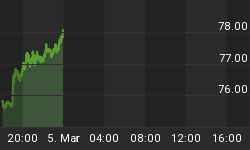The European Union is planning new rules on foreign investment to boost production autonomy for sensitive strategic goods within the bloc. The measures are bound to hit China, with relations that were rapidly improving last year between the two now on a downward spiral since Biden assumed the U.S. presidency.
The European Union unveiled a plan to cut its dependency on foreign suppliers, essentially targeting the Chinese, in six strategic sectors including raw materials, pharmaceutical ingredients, and semiconductors.
EU officials have drawn up a list of 137 products of high dependency, and about half of those imports originate in China. The plan advises the bloc to diversify its supply chain to reduce dependence on one single foreign supplier, as well as to support better European small- and medium-scale enterprises.
“Europe also needs to take the lead in setting standards for batteries, hydrogen, offshore wind, safe chemicals, cybersecurity and space data to ensure the competitiveness and resilience of EU industries”, the paper said.
Planned EU measures to remove some trade distortions through foreign subsidies would also affect China. Under the current system, subsidies granted by non-EU governments like China do not face the same vetting as those from EU nations.
“Companies have been free to use foreign subsidies to buy up businesses here in Europe. Some have been able to undercut their competitors in public tenders not because they are more efficient, but because they get financial support from foreign countries. And that’s not fair,” said EU Vice President Margrethe Vestager. “It has to stop.”
If approved, the rules would grant the EU agencies new powers to block foreign companies from making acquisitions in Europe if they were beneficiaries of government subsidies.
"Europe is open for business, but come and do it in a fair and transparent manner," EU competition chief Margrethe Vestager said.
According to research by European consulting firm Datenna, out of 650 Chinese investments in Europe since 2010, roughly 40% have high or moderate involvement by state-owned or state-controlled companies
Just in February, China officially became the European Union’s top trading partner, trumping the United States, which has long held that status.
But those relations quickly worsened over China’s treatment of its Uyghur population.
According to the EU's statistics office, Eurostat, the export of EU goods to China grew by 2.2% and China exports to the EU grew by 5.6% in 2020. At the same time, EU exports to the US fell by 8.2% and EU imports from the US fell by 13.2%.
We could now start to see those numbers change as Europe jumps in line with Biden against China, even if they resisted the same from Trump.
The new EU measures come as the ratification of a business investment deal with China hangs in the balance. The European Union and China approved a controversial investment agreement in late December after seven years of negotiations.
The deal was only pending ratification by the European Parliament, but in March, the European Union imposed sanctions on four Chinese officials involved in human rights abuses. In response, China imposed counter-sanctions that targeted several high-profile members of the European Parliament, three members of national parliaments, and two EU committees.
The deal faced staunch opposition by EU lawmakers and human rights activists. The Biden administration publicly voiced its displeasure, as well.
















